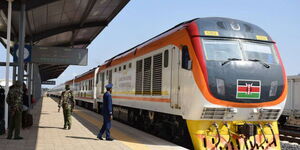As at 2021, the minimum wage in Kenya is Ksh13,572, meaning, a huge section of domestic workers, cashiers, receptionists, drivers, artisans, clerks, messengers, telephone operators, store keepers and others, earn this much.
There is no strict enforcement of the minimum wage law and employers tend to differ from each other, with some workers finding themselves earning as low as Ksh10,000.
With the cost of living in Nairobi being much higher than the national average, a tight budget is required for employees who receive such an amount to manoeuvre and get through the month.
Kenyans.co.ke spoke to individuals who had managed to cope in Nairobi on a Ksh10,000 salary and financial expert Nicholas Gachara to come up with the pointers below;
1.) Residing near the work place
Most work places are situated in the Nairobi Central Business District (CBD) or upscale towns within the city such as Gigiri, Westlands, Karen and so on.
To survive the tight budget, one would need to look for an estate that is situated near the area for convenience.
"As I head to work every morning using the Thika road route, I see Kenyans walking to work especially past Muthaiga estate. I think it is both cheap and a way of exercising," Luke Ngugi stated.
A good example of an estate that has cheap rentals is the Landimawe estate in Starehe constituency. Here, houses range from Ksh2,000 to Ksh3,500.
If single, an individual can consider looking for roommates who he or she can share a house with.
"I know of a group of watchmen who have rented a house in Nairobi. When one group is working, the other is resting and vice versa," John Odongo stated.
2.) Bus fare
In order to live within your means, it is important to master the bus fare trends. The aim is to know at what times the bus fares are hiked.
For example, if you are supposed to get to the office at 8am, it would be advisable to leave the house before 6am. Most times, the fare is usually half of what people who travel during the rush hour pay.
"I have a friend who camps at the National archives in Nairobi until the fares are dropped to what he can afford. He cannot board a bus until it is a certain range, even if it is just Ksh10 more," Odongo disclosed.
3.) House necessities
Necessities such as food can be bought or taken from up country in bulk once the month begins.
Foods like maize are cheap and can last for a longer period of time. Maize can be taken to posho mills where it is grinded and turned into flour.
In addition, this flour is cheaper than what is sold in shops or supermarket.
"My neighbour used to receive a bag full of maize from up country every month. It would be sent via a specific sacco and he would go to the stage to get it.
"He would then take it to a posho mill and grind half so that it does not get spoilt. After it was over, he would take the remaining half to the posho mill and have it grinded again," Ashley Mbati disclosed.
4.) Budget
On payday, it is important to set aside a budget that you can strictly follow to avoid living beyond your means.
Often, employees overindulge immediately after being paid as a form of rewarding themselves. Financial experts, however, advise against it as it may lead to frustration in the middle of the month.
Frustrations then lead one to take loans from friends or use lending apps to survive. The trend mostly never stops as it continues from month to month.
Nicholas Gachara, a financial expert, advised employees to save a percentage of their money, once they receive it.
"One can open a money market account and aim to save at least Ksh500 a month. They can decide to be disciplined and when they get the money, they decide on saving before doing anything else," Gachara advised.
Additionally, one can get into a self help group with the aim of saving money.
5.) Taking children to public institutions
With the free education program in Kenya, it has become easier to manoeuvre and take children to school.
In public primary schools, the education is absolutely free while in secondary, some money has to be remitted to pay for the boarding facilities.
In such instances, one can apply for bursaries which are offered by the government to help children from vulnerable households. Alternatively, one can discuss a pay plan with the school.
6.) Health care
Unemployed individuals who earn from taking up menial jobs can take up the National Hospital Insurance Fund (NHIF) cover.
Staring 2021, the government ushered in new policies where all Kenyans, regardless of their employment status, would make a Ksh6,000 contribution annually.
This equates to a Ksh500 per month.












